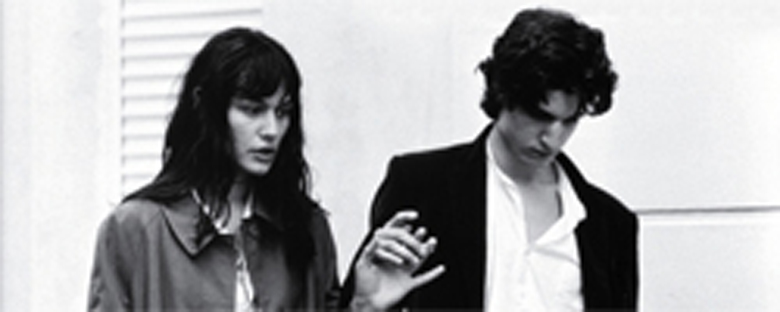Reviews
Les Amants réguliers
Philippe Garrel
France, 2005
Credits
Review by Beth Gilligan
Posted on 27 October 2005
Source Maia Films 35mm print
Related articles
Features: The 43rd New York Film Festival
The failed student uprisings of May 1968 have cast a long shadow over French cinematic history. In the years immediately following, Jean Eustache and Jean-Luc Godard crafted memorable responses to the events (with The Mother and the Whore and Tout va bien, respectively), but more recently, a new generation has begun to address this pivotal era. In 2003, Bernardo Bertolucci released The Dreamers, which sharply divided critics with its emphasis on sex and cinema over politics, and this past month New York’s Film Forum has showcased Henri Langlois: Phantom of the Cinematheque, a documentary chronicling the life of the famed film programmer whose dismissal from his job in 1968 generated mass protests in Paris.
Philippe Garrel’s Regular Lovers, which debuted at this year’s Venice Film Festival, falls somewhere in between the two groups of films. Having been filmed roughly 35 years after the uprisings, it carries with it a sense of historical perspective, but at the same time, unfolds with an immediacy that belies its more recent origins. Unlike The Dreamers, in which Bertolucci incorporated clips from everything from Mouchette to Top Hat to Shock Corridor to trumpet his characters’ passion for the medium, Garrel employs a more subtle means of evoking the era: he uses some of the camera techniques favored by French New Wave filmmakers to convey the social upheavals taking place.
Shot in luminous black and white and running nearly three hours, the movie begins on a forceful note with visuals largely replacing dialogue as the driving force of the narrative. The Night of the Barricades, during which a group of students overturn cars and toss Molotov cocktails at armed guards, is shot in observational, almost documentary-like fashion. The urgency of these scenes is, however, dispelled during the rest of the movie, as the revolution fails and the students are forced to settle back into the patterns of everyday life.
It is during these latter scenes that we are introduced to the central character, François, an idealistic young poet played by the director’s son, Louis Garrel (who also appeared in The Dreamers). In the aftermath of the uprisings, François spends most of his time smoking hash in the opulent home of his friend Antoine, who lives off an inheritance. It is there he meets a free-spirited sculptor named Lilie, whose bourgeois work ethic clashes with François’ nonexistent one. Garrel follows their relationship through all its twists and turns, including Lilie’s desire to sleep with other men, but the heart of the story is the inertia that seemingly consumed many of those who had been heavily involved in the events of May 1968. The degree to which this translates into absorbing onscreen material varies, as the film’s most compelling moments take place during the first hour (which includes the Night of the Barricades sequence), and as a result the two hours allotted to the disenchantment that follows feels excessive, albeit authentic. Despite these flaws, Garrel’s knack for capturing the rhythms of the times cannot be denied, and he remains one of the most potent voices of his generation.
We don’t do comments anymore, but you may contact us here or find us on Twitter or Facebook.



